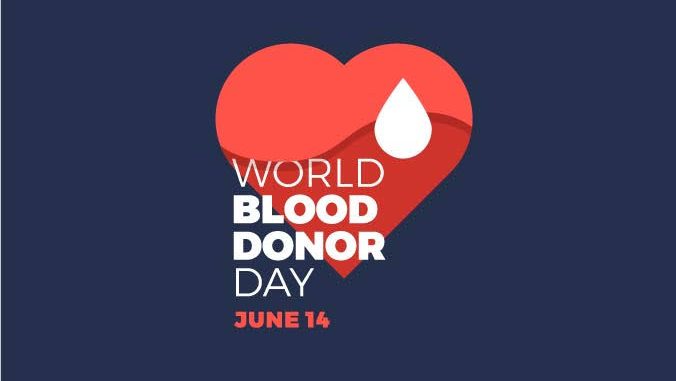By Asmau Ahmad
The World Health Organizations, (WHO) has called on governments, partners, and all stakeholders to mobilise support at district, national and regional levels to invest in strengthening and sustaining blood programs.
Dr Matshidiso Moeti, WHO, Regional Director for Africa made the call in a massage to mark 2023 year’s World Blood Donor Day (WBDD) with campaign slogan “Give blood, give plasma, share life, share often.”
Moeti said that donating blood was an act of solidarity and becoming a blood donor would help ease the pressure on health systems and save lives.
“A blood service that gives patients access to safe blood and blood products in sufficient quantity is a key component of an effective health system providing patient centred healthcare.
“Focusing on assuring equitable access with the aim of progressing to achieving Universal Health Coverage,” she said.
According to her, the day is celebrated every year June, 14 to raise awareness of safe blood
She said the day was also to raise awareness on blood products, such as plasma, and highlight the critical contribution of voluntary, unpaid blood donors to save lives.
“This is a special opportunity to celebrate and thank voluntary blood donors worldwide for their gift of blood.
“Also, to focus on achieving universal access to safe blood transfusion.
“The day underlines the role every person can play by regularly giving the valuable gift of blood to create a safe and sustainable supply of blood and blood products,” Moeti said.
The director said that over the years, Member States in the WHO African Region have made significant progress in establishing nationally coordinated blood transfusion services
According to her, they also made progress in policy frameworks, and national standards for collecting, testing, processing, storing and distributing blood and blood products.
Moeti said that the notable progress notwithstanding, only eight countries have blood services that were designed to always ensure the highest levels of quality and safety for patients and donors.
She said there was reliance on non-remunerated blood donors was still high, with 16 countries accounting for over 80 per cent of voluntary non-remunerated blood donation.
The director said that collection remained low at an average donation rate of 5.9 units per 1000 people compared to 33.1 donations per 1000 people in high-income countries.
“Of concern is the financial barrier to accessing safe blood. In the WHO Africa Region, patients pay, on average, 42 dollars out of pocket to access safe blood.
“Results from a survey conducted in 2022 revealed that 16 countries out of 39 took part in the survey.
“Had more than 80 per cent of voluntary non-remunerated blood donation (VNRBD), and 19 countries had less than 50 per cent of voluntary non-remunerated blood donation.
“Thirty countries reported that plasma-derived medicinal products were listed on their essential medicines list.
“These statistics showed that there is a need for more work to be done in the African Region to improve access to safe blood and blood products,” she said.
Moeti said that the world must address persistent challenges to ensure sustainable access to safe and quality-assured blood and blood products for needy patients.
She said that through their collaborative efforts, they must raise adequate and sustainable funding and increase blood donation rates.
“We also need to build the capacity of countries to separate donated blood into its components such as red cell concentrates, platelet concentrates, fresh frozen plasma,
“Others are cryoprecipitate, and curb inappropriate clinical transfusion practices,” she added.
According to her, WHO Office for Africa is working with partners to leverage expertise and available resources in the region to ensure improved access to supplies of plasma-derived products through the fractionation of domestic plasma.
Moeti said that the organization collaborated with the International Coalition for safe plasma protein products in low- and middle-income countries.
She said that the office organised a virtual congress in June 2022 to discuss issues of safe transfusion and blood supply including donations to highlight these needs in LMICs.
“The webinar was hosted by the International Society for Blood Transfusion.
“The first pilot project, located at National Blood Transfusion Centre in Dakar, Senegal, on pathogen-reduced cryoprecipitate, started in September 2022,” Moeti said.
She appealed for the critical roles of regular voluntary unpaid blood and plasma donations in achieving universal access to safe blood products for all populations.




